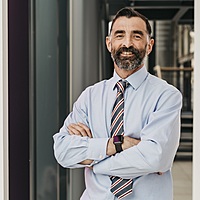How to find tomorrow's leaders in a world flooded with capital
Iain Fulton is the Edinburgh, Scotland-based portfolio manager of the Nikko AM Global Share Fund. He is also a trained historian, with an honours degree in Scottish History.
His training allows him to do something that all investors should, but few actually can – take a long-term perspective when making investment decisions.
.png)
Although mindful of the near-term noise and environment in which he is operating, Fulton takes a longer-term perspective and views markets through the prism of capital cycle theory.
Put simply, the theory posits that overinvestment in industries with high return tend to attract competition, which ultimately creates over-supply that destroys those returns.
The theory is supported by long-term data.
Fulton shares that since 1929, there have been 11 notable investment cycles (with one cycle measured as a trough following a 20% or more downturn, back to the next peak), and that the sector or theme that has led going into the cycle, has not been the leader coming out on any more than one occasion.
In other words, money pouring into a sector or theme kills competition and profitability, and underinvested sectors typically become the leaders coming out the other side of the cycle.
Immediately one can think of a sector or two that has seen (or is seeing) overinvestment, and perhaps a couple that have seen underinvestment in recent years.
In the first of a three-part series, I discuss with Fulton how he is seeing markets right now, which sectors and themes he has recently rotated out of, and importantly, where he is putting that capital to work.
Where are we now?
Ever the historian, when asked about the current state of markets Fulton provides important context in framing his response. First and foremost, he humbly points out that the Nikko global equity team had been on record for some time, talking about the disparity between the expensive and cheap parts of the market – and this is important, as mentioned above it’s a major component of the way the team invests.
Specifically, Fulton and his team noted that the spreads “between the most expensive parts of the market and those that were narrowest, were historically wide margins. Even wider than we'd seen in the 70s, wider than we'd seen in the new economy era in 2000”.
That disparity leads to both caution and, eventually, opportunity - it’s the parts of the market that haven’t been flooded with capital that typically provide the opportunities Fulton likes to pursue.
As for the current state of the market, Fulton references the unprecedented monetary policy experiment that the world embarked upon post the GFC, then into the Euro debt crisis, and then into the pandemic. The scale of the stimulus “just dwarfed anything that had gone before and you really saw a lot of the classic signposts of a bit of a bubble.”
Fulton further points out that in certain areas of the market, there were “heavily loss-making businesses that were really just concepts, but with such low discount rates being applied, people were looking so far off into the future. These businesses only had a faint hope of profitability and it was all based on growth driven by market share, and the market was willing to pay any price for that.”
The recipe was fine while it lasted, but ultimately unsustainable. On top of the huge liquidity that had been pumped into the system, suddenly arrived a pandemic, then inflation and subsequent impact on labour markets, the war in Ukraine, and a commodity shock to top it all off.
That saw valuations come back significantly, to levels “closer to the historic norm - they're not excessively cheap, but neither are they excessively expensive", notes Fulton.
“And that's very healthy. That's the healthy aspect of bear markets, is that they purge that excess and you clear the decks and move on to something more sustainable”, he adds.
Looking ahead, Fulton suggests that “it's probably the growth outlook from here that really matters most of all”.
Where to invest?
When pressed about whether all the excesses of the post-GFC stimulus have washed out of the system, Fulton responds, “it depends which industry and which sector you look at, and which areas have perhaps had the largest amounts of capital thrown at them in terms of new business formation”.
And as noted above, this is a key element of the way that Fulton and his team look at markets and he points to the tech sector as an example;
“If you look at the 2021 funding figures for new technology start-ups (funding for start-ups in the private market) it's about $650 billion just for tech funding in the US in 2021. And then add on to that another $350 billion or so in the IPO market as well… nearly a trillion dollars in new capital formation in the technology sector, which is kind of the cherry on the cake of that liquidity”.
It is those areas of the market, those which have been flooded with capital, that Fulton likes to avoid. “The normal level of funding would be about a third of that, maybe $200-300 billion per annum.
Why does Fulton want to avoid such areas of the market? He points to the capital cycle theory of profitability, noting:
“When you get high levels of capital formation in an industry, it tends to compete away profits”.
Fulton points out that many of the dollars spent by new start-ups are used on infrastructure assets for IT, options and healthy salaries for the founders, and on digital advertising for customer acquisition costs. “So, there's a large amount of spend and new capital formation that looks like it's much more cyclical, and I think that explains the drawdown in valuations that we saw last year”.
Ultimately, Fulton is wary of these areas of the market which have had large amounts of capital pumped into them, eroding away profitability as he puts it. “We’re quite cautious around that, quite careful about where we deploy new capital today”.
So, what have you sold?
Before diving into what Fulton has bought and sold in the wake of the economic environment over the past few years, I asked him if the portfolio turnover had been higher than usual during the period, given the volatility.
“You would think given everything that has happened, it would have been much higher, but actually we've tended to turn over around about 30% of the portfolio (15% selling and 15% buying), give or take, in any one year, and that's actually held pretty constant.” Fulton cites doing things gradually and notes that the team made a lot of changes in the early part of last year.
Fulton notes that the portfolio rotated out of some areas in which it has done quite well but was being flooded with capital. Tech is the obvious area, already discussed, with names like SVB Financial Group (NYSE: SIVB) and Amazon (NYSE: AMZN).
SVB had been very successful in tapping into flows within the private equity market and earning very good fees, before and during the pandemic, but the team realised that the business was probably over-earning in the short term. It was a similar story with Amazon (NASDAQ: AMZN), which was a huge pandemic beneficiary.
“We paid attention to the slowdown coming in cloud infrastructure and, on top of that, the very high levels of recruitment that had been done through the pandemic and the big step-up in capital expenditures. We were concerned about the marginal efficiency and combined with a fairly high valuation, that was a straightforward one to get out of”.
It has proven to be a sage exit, with Amazon down from around US$184 in November 2021, to presently be trading near US$100.
And what have you been buying?
As for the other side of the equation, Fulton notes
“it's been about investing into the areas that we think are going to be potential leadership in the next cycle – and there’s a couple of segments of note".
The first is energy transition, with this theme currently occupying 17% of the portfolio. There is a huge amount of investment required to shift the global economy from where it is today, from an emissions point of view, to where it needs to be. There is also significant pressure to increase the security of supply, notes Fulton.
“There's a huge demand to firstly, push forward on emission reduction, but secondly, to increase the security of that supply. And so, the mix of energy over the long-term needs to change and we're now seeing a lot of this sustainability begin to come through”.
On top of that, Fulton points to the need for infrastructure and the need for raw materials and energy to build assets as part of the energy transition.
”There's probably a sustained cycle in the infrastructure side people are maybe underestimating. There's been a long, long period of underinvestment and we need to transition to something more sustainable, and to do that we're going to need to build things and create stuff and that takes energy to do that. And so, to secure those supplies, there's probably a cycle of spending there that has greater longevity”.
Fulton also points out that these engineering and construction firms now have a much bigger addressable market. Where previously it was just oil and gas, now the opportunity set includes carbon capture and storage, renewable infrastructure, and increased efficiency for existing oil and gas assets.
“There's a lot of expenditure that we think probably bodes well for the return on capital of those firms. We're interested in the longevity of that cycle and that these projects are really beginning to come to fruition and there's real incentives, particularly in Europe to get these projects done”.
As such, the team have been adding stocks in the areas of engineering and construction, with Australian mining services company Worley (ASX: WOR) making it into the portfolio. Another name added to the mix has been US-based engineering company, KBR (NYSE: KBR). The company operates in the fields of science, technology and engineering, servicing various markets including aerospace, defence, industrial and intelligence.
The other area that the portfolio is overweight, is healthcare. As Fulton puts it, “this revolves around that long-term dynamic of ageing societies. We've seen a lot of dislocation in healthcare systems, a lot of pressure on the labour market, and the cost of healthcare delivery has continued to go up”.
Given this dynamic, Fulton and his team are focused on businesses that can help reduce the cost of healthcare delivery and innovate to provide new therapies to tackle large-scale healthcare problems. He cites diabetes as one such problem and puts forward US-based healthcare name Danaher Corporation (NYSE: DHR) as a name that he likes in the space. Danaher designs, manufactures, and markets professional, medical, industrial, and commercial products and services.
“Like Worley provides the picks and shovels for energy transition, Danaher provide the picks and shovels for the new drug development and all the work that goes on in terms of experimenting with new proteins and new ways of delivering new drugs. Danaher also produces a lot of the equipment to do that and we think that's a great place to be longer term”.
Learn more
Iain and his team seek to uncover Future Quality investments – businesses that can attain and sustain high returns on invested capital to deliver better performance for shareholders over the long term. To find out more, visit the Nikko AM Global Share Fund profile below.

The Nikko AM Global Share Fund is distributed in Australia by Yarra Capital Management.
2 topics
6 stocks mentioned
1 fund mentioned
1 contributor mentioned

.jpg)
